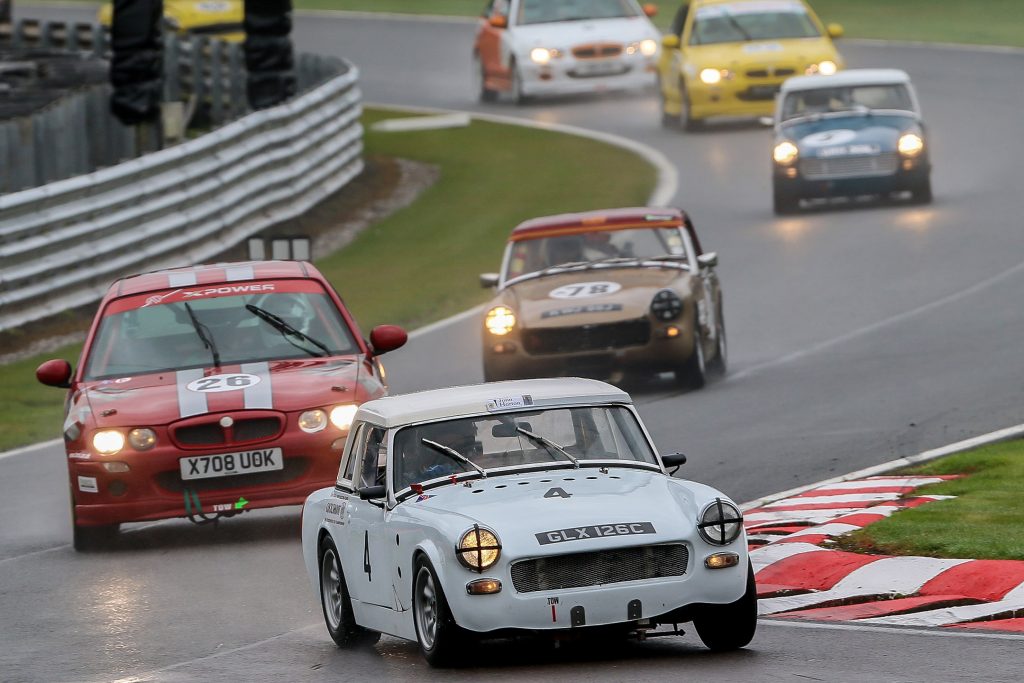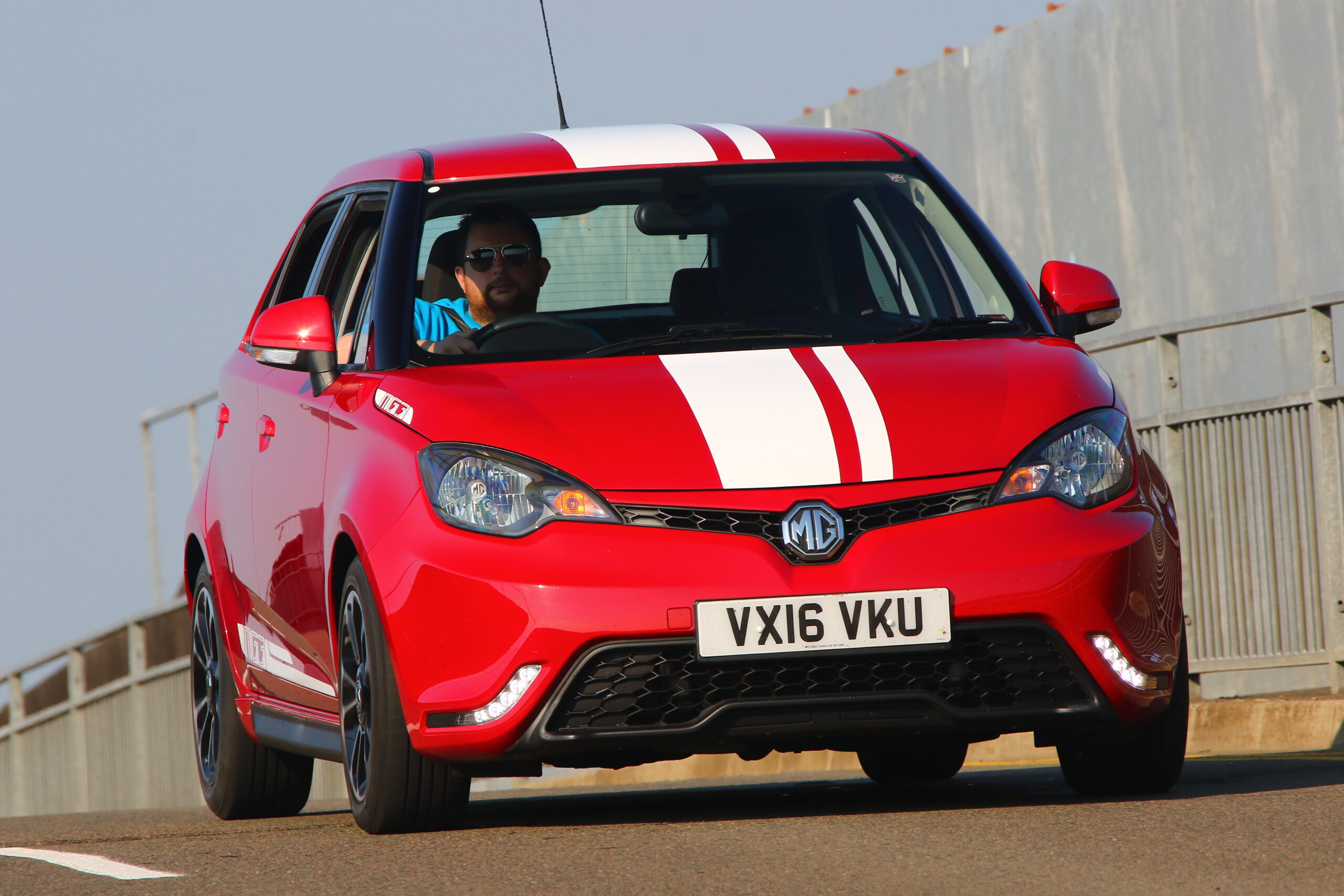Vnuk: An important update
Please find below an update on the Vnuk case, issued on 16th January 2017. For more on the Vnuk case and the possible implications for stored vehicles etc, click here.
The update is below:

We have been working on Vnuk since the European Court of Justice (ECJ) judgement was
handed down in September 2014. This has been a partnership between motorcycle sport,
the wider four wheeled motorsport sector, the insurance industry and the Department for
Transport. We have also liaised closely with European colleagues and the European
Commission. This is a rare example of government, the industry, sporting bodies and
insurers all uniting with a single voice.
It is important to realise that Vnuk is not an item of forthcoming legislation which can be
lobbied against or amended, but an actual ruling of Europe’s highest court, with no further
avenues for appeal possible. Vnuk is set in stone and cannot be changed. It requires third
party damage and injury insurance to be in place for all mechanically propelled vehicles
when used at any time, for any purpose and in any place. This includes motorsport
vehicles.
However, the European Motor Insurance Directive (MID) can be changed to remove certain
vehicles from the scope of the Directive, and therefore Vnuk. It is here that we have
focused considerable effort.
The UK Government is not in an easy position. Currently, its only fully legal option is to
implement Vnuk. It has proposed an option based on what a possible amended MID could
look like and we strongly support this approach. However, we are concerned about the
Government’s legal position with regard to this option, in the absence of proposals from
Brussels, let alone an amended MID.
But with no sign of the European Commission legislating to remove motorsport vehicles
from the MID and time running out for EU member states to implement Vnuk, the UK
Government was forced to launch its recent public consultation, (December 2016), with
one option being to fully implement the judgement. This would have catastrophic
consequences for the sport.
The Government could choose to ‘exempt’ motorsport riders and drivers from a
requirement to buy third party insurance. This is also a legal option. But the requirements
of Vnuk will still remain (insurance in place to cover the use of any mechanically propelled
vehicle at any time, in any place and for any purpose). This means that third party
damage and injury liabilities would remain.
The result of this would likely be significant hikes in the cost of all kinds of insurance to cover the costs of meeting individual claims
from ‘exempt’ classes of vehicles. Therefore, unless the Motor Insurance Directive is
amended, there is no escaping Vnuk. Politically and practically, exemption is not easily a
realistic option.
Although the UK has voted to leave the EU, this may take several years and the final
arrangements for our ongoing relationship with the EU is unclear. While we remain in the
EU we are subject to Vnuk. The Government can’t simply ignore it. If we leave the EU and
remain in the single market, or the European Economic Area (EEA), then Vnuk, along with
a large percentage of other European law will still apply to the UK. Like many directives,
including driving and riding licences, the MID is marked EEA ‘relevant’, so will continue to
apply if we remain part of the single market.
However, the Isle of Man TT will be unaffected, as the Isle of Man is neither in the EU, or
the EEA. We also feel that it is likely (though not 100% certain) that long distance
reliability trials and other events that utilise the public highway are less likely to be
affected, as competitor vehicles need to be road legal and carry third party insurance.
As a result of the above and the launch of the Government’s consultation on implementing
Vnuk, it became necessary to make the issue public, to alert fans and riders to their
opportunity to respond to the UK government consultation and to highlight the issues
behind it. We want the unintended consequences of Vnuk to be made clear and resolved
in a manner that protects UK motor and motorcycle sport.
Background to lobbying
The possible ramifications for motorsport of the Vnuk ruling were first notified to the
industry and sporting bodies in the two and four wheel sectors in September 2014. The UK
government and insurance industry also became aware of the potential issues and began
working with us.
MCIA/ACU/AMCA and the Motorsport Industry Association (MIA) created a partnership to
address Vnuk along with all other bodies involved with UK motorsport, from F1 to
grassroots organisations. The insurance industry and the Government quickly joined the
partnership. Key objectives were to ensure that the European sports bodies started
lobbying the EU and member states to call on the European Commission to amend the
Motor Insurance Directive. The UK Government meanwhile, partnered with the German
and Irish Governments to lobby the EU, as this is not just a UK concern.
Considerable efforts have been made to lobby the EU institutions (Parliament, Commission
and Council). We have also liaised closely with international sporting bodies: the FIM and
FIA. Via the ACU, we have addressed several meetings of the FIM and the MSA also raised
the issue with the FIA.
As it was clear the EC is unhappy about the consequences of Vnuk, our lobbying in Brussels
was successful and under the former European Commissioner Lord Hill, the EC had agreed
to amend the Motor Insurance Directive. The Department for Transport had hoped the EU
would resolve the situation for motorsport before Vnuk needed to be implemented. They
waited two years, to see if this would happen. It did not.
The European Commission did consult governments and proposed a ‘roadmap’ of options.
This roadmap became the Initial Impact Assessment, which was first published in June
2016. However, the European Commission wants a second consultation, which is yet to be
conducted. With the resignation of Lord Hill in late June 2016, the matter appears to have
lost all momentum at European Commission level and it is unknown when, or even if, the
MID will be amended.
In the meantime, member states have run out of time and need to implement Vnuk, or try
to find a way around it, which is what the UK Government is trying to do with its public
consultation. As Vnuk has now reached the point where the Government is seeking wider
input from the public, we decided to highlight the serious threat posed by Vnuk. We
wanted to call for support for our position which is that the Government must in no way
implement Vnuk in a manner which damages UK motor and motorcycle sport. This will
help to create critical mass behind us as we progress the politics. It is interesting to note
that the Foreign Secretary has responded by writing an article in the Telegraph on January
1st. He focussed on non-motor sport areas though.
As for other EU countries, Germany and Ireland recognise the problem and Vnuk received
a large amount of coverage in Ireland back in the summer. Media in other countries failed
to pick up on the Europe-wide ramifications and there remains some apathy in other EU
countries and a belief that nothing needs to be done. This belief may be due to a number
of factors. The people considering the legislation are not motorsport experts, some
countries may be intending to follow Finland’s example and some think they are okay, as
they already require riders to have third party liability. However we have discovered that
this insurance only covers injury, not vehicle damage and so fails the Vnuk ‘tests’. Of
course, if another member state finds a way to accommodate Vnuk in a way that works,
we will encourage the UK Government to do the same. But we simply can’t hope or rely on
this happening as Vnuk is incredibly specific.
Finland has had third party insurance for riders in the sport for a few years. In the initial
year, this was €200. Last year, a typical policy was around €4,000. Quotes for the 2017
season have included €29,000 (twenty nine thousand Euro) for a 13-year-old motocross
rider (report in Finland press). Finland was in the process of repealing the individual
insurance requirement for motorsports events, but Vnuk put a stop to that.
Some commentators are so shocked by the possible ramifications of Vnuk, they believe
that someone somewhere will stop it from happening; and that highlighting the worst case
scenario is scaremongering.
Vnuk is too far reaching to simply ignore, or take a relaxed view about. Self-insurance
options are extremely limited, even for Formula One and Moto GP. But such solutions are
impossible for the wider sport and without Vnuk-compliant insurance, or insurance at a
cost that few will eventually want to bear, events will not be able to legally take place.
The 58,000 riders who take part in grassroots events across the UK will find that legal
avenues to the sport will be shut down.
Strong pressure via the consultation raises political interest that will offer the UK
Government greater justification to produce a result which protects the sport.
Encouraging organisations to reply to the consultation and people generally to sign an
independent on-line petition is one reason why we chose this moment to make public its
concerns.
Underplaying the risks is not a sensible course of action, given the timescale
We are able to provide advice for responding to the consultation and there is also a
petition which is already approaching 10,000 signatures. We urge all organisations to
provide a single response on behalf of their members. LARA should do the same. But we
would also urge that ordinary riders and drivers sign the petition. This to avoid the
negative politics that could come from a mass ‘orchestrated’ response to the consultation
– these will be grouped together as a single response by the DfT.
The consultation deadline is on March 31st. the official response from the key motorcycle
organisations will be submitted near to this deadline. This to allow our response to be up
to date with any developments between now and the end of March.
Government will report on the consultation sometime later and regulations could be
reasonably expected to be laid in Parliament later this year, though we cannot be certain.
As it is likely that primary legislation could be involved, the issue will be extensively
debated in Parliament – this is why it is not important that the petition is not on the
Parliament website.
How Brexit proceeds will also be a factor. We will advise re options here when matters
become clearer after the UK evokes Article 50.
The petition is here: https://www.change.org/p/the-rt-hon-chris-grayling-fight-vnuk-theeu-
judgement-threatening-to-kill-uk-motorsport
January 2017.
Craig Carey-Clinch MCIPR
Managing Director
Rowan Public Affairs (RPA Ltd)

 MG Car Club
MG Car Club

